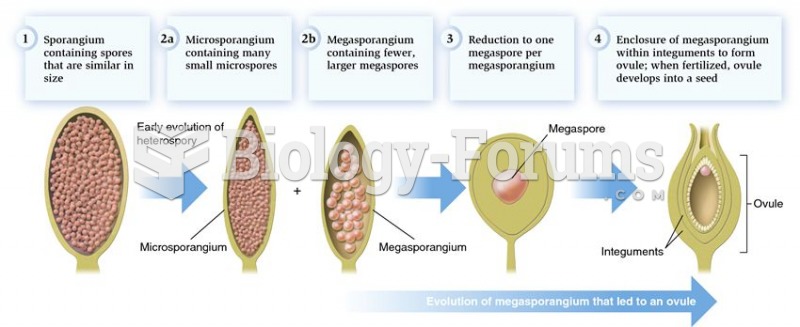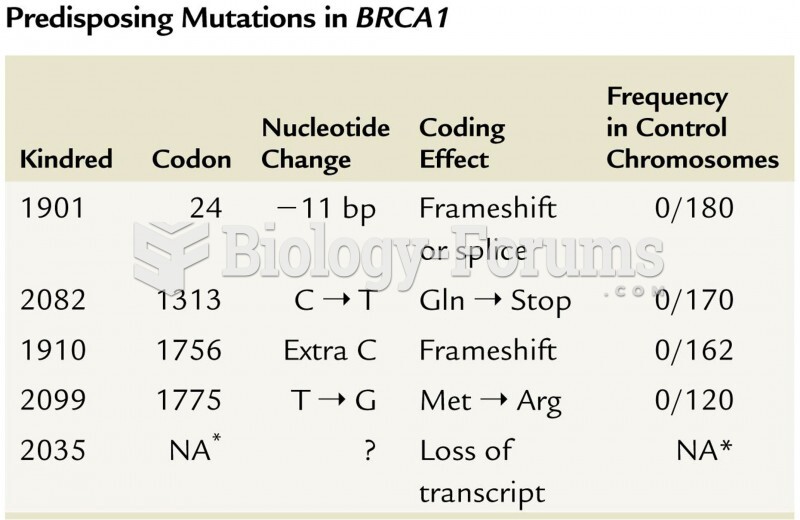|
|
|
Calcitonin is a naturally occurring hormone. In women who are at least 5 years beyond menopause, it slows bone loss and increases spinal bone density.
After 5 years of being diagnosed with rheumatoid arthritis, one every three patients will no longer be able to work.
Egg cells are about the size of a grain of sand. They are formed inside of a female's ovaries before she is even born.
The cure for trichomoniasis is easy as long as the patient does not drink alcoholic beverages for 24 hours. Just a single dose of medication is needed to rid the body of the disease. However, without proper precautions, an individual may contract the disease repeatedly. In fact, most people develop trichomoniasis again within three months of their last treatment.
Women are 50% to 75% more likely than men to experience an adverse drug reaction.







